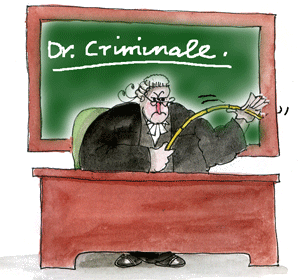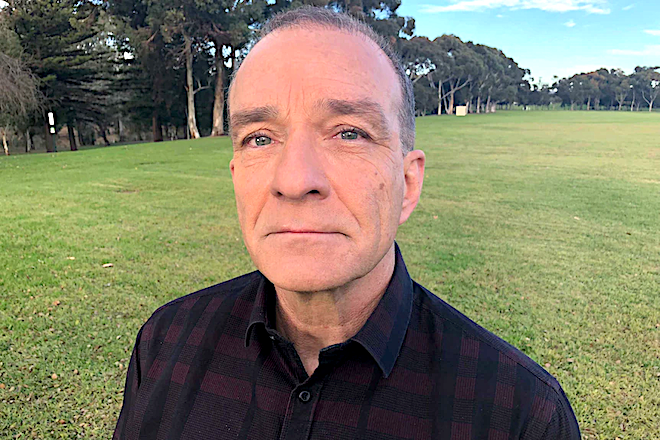Wither pro bono?
 Dr Criminale •
Dr Criminale •  Tuesday, May 9, 2023
Tuesday, May 9, 2023 There's no such thing as a free lunch ... And free lawyers are just as scarce ... Pro bono arrangement scrapped by SA appeal court ... Disincentive for lawyers to do the hard yards on wrongful conviction cases ... Hugh Selby writes
 Pro bono lawyers frequently work on wrongful conviction cases that are notoriously hard to overturn - often requiring years of work motivated by a sense of wanting to remedy an apparent injustice.
Pro bono lawyers frequently work on wrongful conviction cases that are notoriously hard to overturn - often requiring years of work motivated by a sense of wanting to remedy an apparent injustice.
Lawyers who agree to do this work have little idea how much time and effort will be spent, or how much abuse will be copped in the process. They are innocents abroad who learn bitter lessons on the journey.
Typically, the preparation for these cases involves enormous amounts of work - many hundreds of hours - sifting through masses of records, carrying out investigations, writing submissions, and being repeatedly rebuffed by people on a payroll.
Those who take pro bono cases can rightly hope to be recompensed if the client acquires the means to pay. The lawyer can say to the client:
"At the moment you don't have any funds. I'll work on your case for no fee, but if you win the lottery, or you come into funds in any other way, such as by inheritance or a government payout, then I expect you to pay."
A prisoner client, serving many years, should surely welcome such an offer. After all, they can't spend the money inside.
A pro bono lawyer might make the deal even sweeter for a prisoner: "You pay me if you are released and you are compensated."
The prisoner invariably has no funds, a long sentence, and the bare hope that an altruistic lawyer is prepared to take a long odds gamble.
From a prisoner's perspective there is no downside. It's not a bargain with the devil. It's a bargain with a living saint.
Should it be in writing to show how reasonable it is? Not necessarily.
If the prisoner be released as a result of work by the pro bono lawyer, and paid a large amount of compensation by the government, it would be reasonable to expect the bargain to be honoured.
In an ideal world, the grateful prisoner would want to pay the lawyer - surely.
In the real world where 'grateful' is aspirational, one would still hope, even expect, that the court would step in, using inherent powers, to set out a means for assessing this success fee and ensure that the ungrateful, former incarcerated client paid at least some recompense to the lawyer - sharing the good fortune, so to speak.
Sadly, we find this is not the case - at least in South Australia (and since it is an appellate decision it has nationwide relevance).
The SA appeal court decided in late March that a lawyer should get nothing for efforts over many years in the Henry Keogh case. Hegarty v Keogh No. 2 [2023] SASCA 30).
President Livesey with Justices Doyle and Bleby said that the agreement about the lawyer's efforts had to be in writing. Spoken wasn't enough.
The law was subsequently changed so thgat Keogh could have a new appeal, and with different lawyers he got out of the clink.
The court found that the work of the prisoner's previous lawyers, who devised the essential and successful appeal points, was irrelevant, didn't count, and had no value.
 Keogh: refused to pay the legal brains trust
Keogh: refused to pay the legal brains trust
The appeal judgment showed no awareness of wrongful conviction campaigns: how they were initiated; how they developed; the emotional trauma; the amount of effort met by inevitable dead ends; wrong turns and disappointments - quite apart from the need to keep fingers crossed for a bit of luck.
It gets worse. The appeal decision in Hegarty v Keogh says that because the prisoner was released and the DPP chose not to have a second trial, then the release was not really a release.
Further, the payment made by the government to Keogh was ex gratia with no admissions, so it was not held to amount to compensation.
Yet, the prisoner was freed, remains free, and the government gave him a lot of money.
This only matters because pro bono work is an essential element - albeit a last ditch one - in our legal system, where mistakes are inevitable and resistance by police, prosecutors and judiciary to later acknowledging those mistakes is inevitable.
Pro bono lawyers need to be encouraged, not only for short trials and appeals, but also for long term campaigns.
The South Australian decision kills off such campaigns. A written agreement for a wrongful conviction campaign is pie in the sky. It assumes a state of certainty when there is nothing but uncertainty and despair.
This recent South Australian three judge decision needs to be overturned.
An application is to be made to the High Court. If successful then we might expect guidance, not only on pro bono engagements that are open ended as to their duration, but also when and how it is proper to value work that has been done by an altruistic lawyer over many years.
See also, The money or the box
Hugh Selby was a barrister who did pro bono work. He now writes for citynews.com.au









Reader Comments